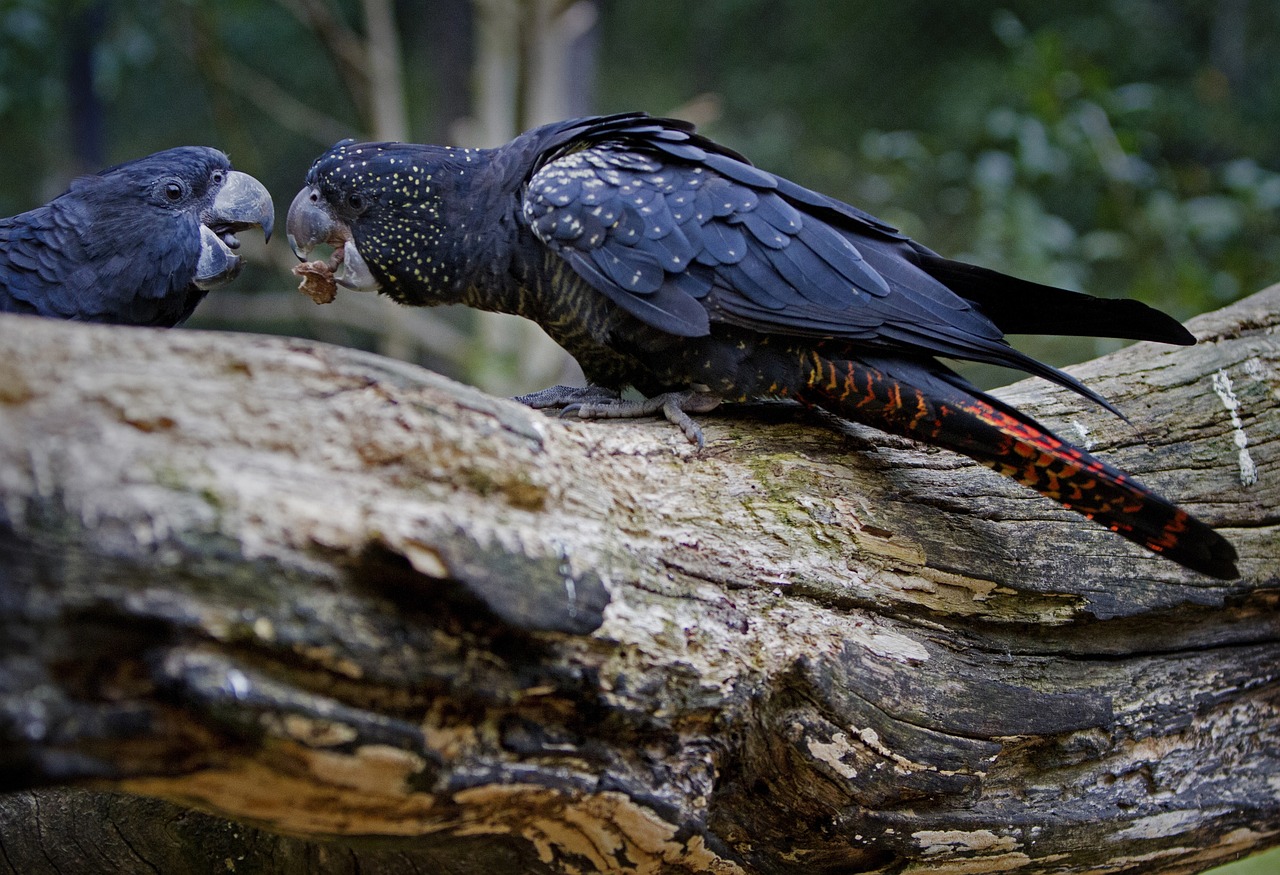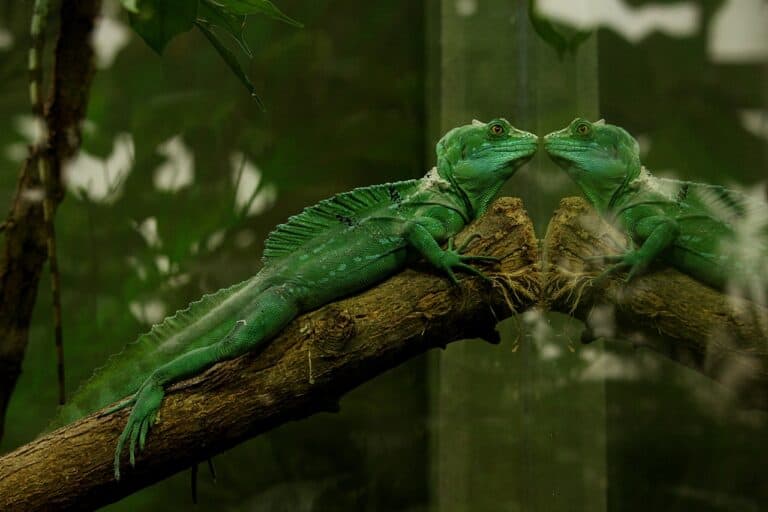The Future of Exotic Pet Ownership: What Lies Ahead?
Are you one of the many people who dream of owning an exotic pet?
Perhaps you envision having a pet tiger or monkey, or maybe something more unique like a sugar glider or a hedgehog.
While the idea of owning an exotic pet may seem alluring, there are many things to consider before making such a big decision.
In this article, we’ll take a closer look at the future of exotic pet ownership and what it means for both animals and humans.
Key takeaways:
- Exotic pet ownership can have both risks and benefits, and it is essential to consider these carefully before deciding to own an exotic pet.
- Regulation and enforcement of laws may not be enough to address the risks associated with exotic pet ownership, and education and outreach efforts may also be necessary.
- Technology has the potential to provide safe and ethical alternatives to traditional exotic pet ownership, such as virtual and robotic pets.
- Understanding the impact of exotic pet ownership on wild populations is crucial for promoting responsible ownership.
- The future of exotic pet ownership will likely involve a combination of regulation, education, and personal choice, with a focus on promoting responsible ownership and protecting animal welfare and wild populations.
The Future of Exotic Pet Ownership
The future of exotic pet ownership is a rather complex issue, with many different factors at play.
One of the biggest concerns is definitely the impact that exotic pet ownership has on animal welfare.
Many exotic animals are not well-suited to life in captivity, and may suffer from a range of health problems as a result.
In addition, many exotic pets are taken from the wild, which can have a devastating impact on wild populations.
Despite these concerns, there are still a lot of people who choose to own exotic pets.
For some, owning an exotic pet is a status symbol or a way to feel more connected to nature.
For others, it is simply a matter of personal preference.
As a result, the future of exotic pet ownership is likely to be a mix of regulation, education, and personal choice.
The Benefits of Exotic Pet Ownership
While there are certain risks associated with owning an exotic pet, there are also some potential benefits.
For example, owning an exotic pet can be a brilliant way to learn more about the different types of animals and their behaviors.
It can also be a way to connect with nature and develop a deeper appreciation for the world around us.
In addition, some people find that owning an exotic pet can be a therapeutic experience.
Animals can provide companionship, comfort, and even help reduce stress and anxiety.
Of course, these benefits are not guaranteed, and it is crucial to consider what the potential risks are before deciding to own an exotic pet.
The Risks of Exotic Pet Ownership
There are many risks associated with owning an exotic pet.
For starters, many exotic animals are not well-suited to life in captivity.
They may require specialized diets, housing, and medical care that can be difficult or expensive to provide. In addition, some exotic pets can be dangerous, both to their owners and to others.
Another major concern is the impact that exotic pet ownership can have on wild populations.
Many exotic pets are taken from the wild, which can lead to a noticeable decline in their numbers.
In addition, some exotic pets can escape or be released into the wild, where they may pose a threat to native species.
The Role of Regulation in Exotic Pet Ownership
Given the risks associated with owning an exotic pet, many governments have implemented regulations to try to mitigate some of the potential harm.
For example, some countries have banned particular types of exotic pets altogether, while others require permits or licenses for ownership.
While regulation can undoubtedly help to reduce the negative impact of exotic pet ownership, it is essential to note that regulation alone may not be enough.
Enforcement of regulations can be difficult, and many people continue to own exotic pets regardless of the laws in place.
As a result, education and outreach efforts may also be necessary to help people understand the risks and responsibilities associated with owning an exotic pet.
Education and Outreach
One of the keys to promoting responsible exotic pet ownership is education and outreach.
By providing information about the risks and responsibilities of owning an exotic pet, as well as resources for proper care and husbandry, individuals can make more informed decisions regarding whether or not to own an exotic pet.
In addition, outreach efforts can help to raise awareness about the impact that exotic pet ownership can have on wild populations.
By highlighting the negative consequences of taking animals from the wild, and the importance of preserving natural habitats, people may be more likely to consider alternative forms of pet ownership.
The Role of Technology in Exotic Pet Ownership
The advancements in technology that we see have the potential to truly revolutionize the way that we interact with exotic animals.
For example, virtual reality (VR) and augmented reality (AR) technologies could allow people to experience the thrill of owning an exotic pet without the risks and responsibilities associated with actual ownership.
Similarly, advances in robotics and artificial intelligence could allow for the creation of lifelike robotic animals that can provide many of the very same benefits as real animals without the associated risks.
While these technologies are still in their early stages, they have the potential to provide a safe and ethical alternative to traditional exotic pet ownership.
FAQs
Will exotic pets become illegal to own in the future?
It is possible that some exotic pets may become illegal to own in the future.
Many countries and states have already enacted laws that regulate or prohibit the ownership of certain species of exotic animals.
However, it is unlikely that all exotic pets will become illegal to own, as some species are considered less risky and easier to care for.
What are the potential consequences of banning exotic pet ownership?
Banning exotic pet ownership could have both positive and negative consequences.
On the positive side, it could help protect animal welfare and prevent the spread of invasive species.
However, it could also lead to increased demand for illegal exotic pet trade, which could further harm animal welfare and increase the risk of invasive species introductions.
Additionally, some pet owners may be unwilling to give up their exotic pets, leading to increased enforcement and potential criminalization of pet ownership.
What are the alternatives to owning exotic pets?
There are many alternatives to owning exotic pets that still allow individuals to interact with animals and experience nature.
Visiting zoos, aquariums, and wildlife sanctuaries can provide a safe and educational way to learn about exotic animals and their habitats.
Additionally, volunteering at animal shelters or conservation organizations can provide opportunities to work with a variety of animals and contribute to their welfare.
What can individuals do to promote responsible exotic pet ownership?
Individuals can promote responsible exotic pet ownership by doing their research before acquiring an exotic pet and ensuring they can provide the necessary care and environment for the animal.
They can also support organizations that advocate for animal welfare and work to regulate the exotic pet trade.
Finally, individuals can educate others about the risks and challenges associated with exotic pet ownership and encourage them to consider alternative ways to interact with exotic animals.
What are the risks of owning an exotic pet?
There are many risks associated with owning an exotic pet, including health problems, specialized care needs, and the potential for escape or release into the wild.
What are the benefits of owning an exotic pet?
Owning an exotic pet can provide opportunities to learn about different types of animals and their behaviors, as well as provide therapeutic benefits.
How can we promote responsible exotic pet ownership?
Education and outreach efforts, as well as regulation and enforcement, can all help to promote responsible exotic pet ownership.
What impact does exotic pet ownership have on wild populations?
Exotic pet ownership can have a negative impact on wild populations, as animals may be taken from the wild and released or escape into natural habitats.
Conclusion
The future of exotic pet ownership is a complex problem, with many different factors at play, making it hard to predict.
While there are certain risks associated with owning an exotic pet, there are also potential benefits.
As we move forward, it’ll become increasingly important to balance the desires of pet owners with the need to protect both animal welfare and wild populations.
By promoting responsible ownership, educating people about the risks and responsibilities of exotic pet ownership, and exploring new technologies and alternatives, we can create a future in which both humans and animals can thrive.
Peter Stones is the founder of Exotic Pets Place, the leading online resource for exotic pet care information.
With over 10 years of hands-on exotic pet ownership experience, he is deeply passionate about sharing his expertise to help others properly care for their unusual pets.
When he's not writing extensively researched articles or connecting with fellow exotic pet enthusiasts worldwide, you can find Peter at home tending to his own beloved menagerie of exotic animals.







